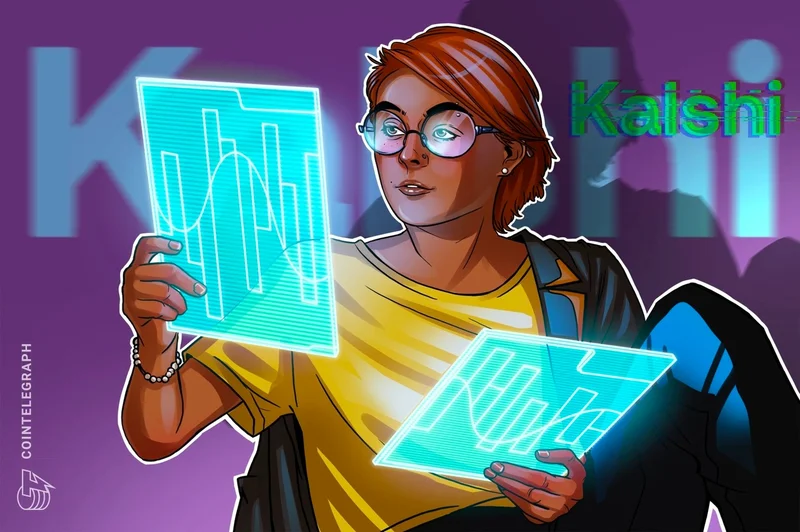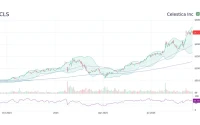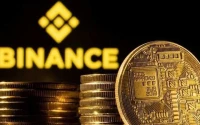The Day a Tiny App Made Wall Street Panic: What They're Really Afraid Of
It was a bloodbath, but not the kind you see on a Sunday afternoon highlights reel. On a seemingly ordinary Tuesday, the stock tickers for the giants of sports betting—DraftKings, FanDuel—started flashing a furious, panicked red. DraftKings plummeted 12% on trading volume four times its daily average. Flutter, FanDuel’s parent, tumbled 10%. There was no massive scandal, no disastrous earnings report, no season-ending injury to a star player. The cataclysm was triggered by something far smaller, and infinitely more interesting: a new feature inside a niche app called Kalshi.
When I saw the market’s reaction that day, I honestly just laughed. It wasn't a laugh of malice, but one of pure, unadulterated recognition. This, right here, is what the first tremor of a true paradigm shift feels like. The feature itself was a parlay builder, allowing users to combine multiple predictions on a game, a direct shot at the golden goose of modern sportsbooks. Parlays are the high-margin, lottery-ticket-like bets that casual fans love and that form the very foundation of sportsbook profitability. For a small prediction market to encroach on this sacred ground was seen as an act of war.
But to see this as a simple battle over a betting product is to miss the supernova for the spark. Wall Street didn't panic because it was afraid of Kalshi’s parlay feature. It panicked because, for one brief, terrifying moment, it saw a glimpse of a future where its entire business model is rendered obsolete.
What happened that day is like watching the taxi industry in 2009. The big taxi conglomerates, with their medallions and rigid pricing, weren't worried about some quirky black car service app. They were focused on their own fleets, their own drivers, their own rules. Then, one day, they wake up and find their stock prices tanking because that little app, Uber, just rolled out a feature that lets anyone, anywhere, hail a ride. The panic isn't about that one new feature. It's the sudden, gut-wrenching realization that the entire system of centralized control is being challenged by a more efficient, decentralized, and technologically superior model. That’s what Kalshi represents to the world of sports betting.
The Analysts' Calm Voice (and the Louder Truth)
Almost immediately, the cavalry of Wall Street analysts rode in to soothe the frayed nerves of investors. The sell-off was a “compelling buying opportunity,” they declared. The fears were “overblown.” (Analysts: Betting Stock Drops Over Kalshi Parlays Overblown). Their arguments were, on the surface, perfectly logical. They pointed out that prediction markets like Kalshi have structural hurdles—collateral requirements and liquidity issues that make them less than ideal for the kind of casual, long-shot parlays that fuel the sports betting industry. They argued, correctly, that most casual bettors value a slick user interface and brand familiarity over the marginal pricing advantages an exchange might offer.

And they’re right, for now. But they are asking the wrong question. The analysts are asking, “Can Kalshi build a better parlay product than DraftKings today?” But shouldn't the real, earth-shaking question be, “What happens when a market based on pure probability and transparent, peer-to-peer pricing goes head-to-head with a market based on opaque odds and a guaranteed house edge?” What happens when that technology matures, becomes more user-friendly, and scales its liquidity?
You see, Kalshi isn’t just another sportsbook. It’s a CFTC-regulated exchange that operates on a totally different principle. It’s a prediction market—in simpler terms, think of it as a stock market for ideas and events, where the 'stock price' of an outcome directly reflects the crowd's collective belief in its probability. There is no “house” in the traditional sense. You are betting against other people in a dynamic, transparent marketplace of belief.
The sheer potential here is breathtaking—we're talking about a system that could, in theory, price the risk of any future event with terrifying accuracy, from a government shutdown (Kalshi now sees government shutdown lasting nearly 21 days, second-longest in U.S. history) to movie box office numbers to, yes, whether a quarterback will throw for over 250 yards, and that represents a fundamental shift far, far bigger than just sports. This technology isn't just a new way to bet; it's a new way to aggregate human knowledge and quantify the future.
Of course, with this power comes immense responsibility. A market for everything is a tool that needs careful ethical guardrails. But the regulatory battles currently being fought by states against Kalshi and Robinhood aren't just about protecting state-run gambling monopolies; they're the last gasps of an old system confronting a new one it doesn't fully understand.
This Wasn't a Glitch; It Was a Preview
Let’s be clear. The stock market’s violent reaction wasn’t an error. It wasn’t an overblown response to a minor feature. It was a moment of profound and terrifying clarity. For a few hours, the market stopped looking at the next quarter’s earnings and saw the next decade’s technology. It saw a future where the concept of a "house edge" becomes a historical artifact, replaced by the mathematical elegance of a true market.
The incumbents like DraftKings and FanDuel will likely win this particular battle. They have the brand recognition, the marketing budgets, and the regulatory moats to fend off this initial challenge. But the war for a more efficient, transparent, and honest way of pricing probability has just begun. The technology of prediction markets is the real story here, and like all powerful ideas, it cannot be un-invented. That Tuesday wasn't a stock market crash; it was a crack of thunder, signaling the arrival of a storm that will, eventually, reshape the entire landscape.









